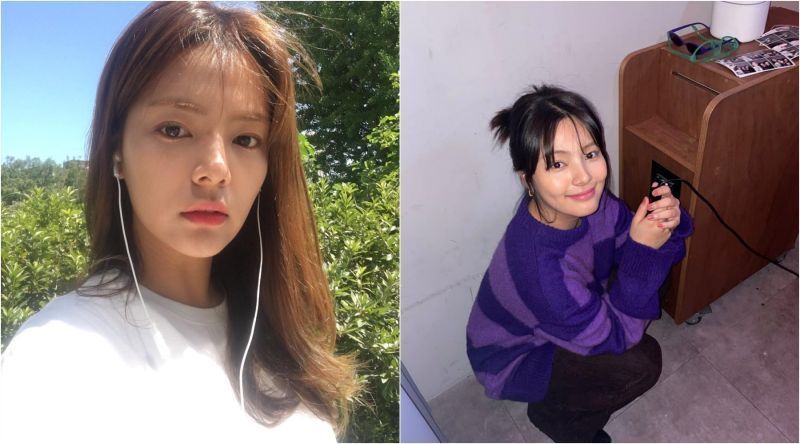
England
英格兰
Although England is a country rich in folklore and traditions, it has no definitive "national" costume. The most well-known folk costumes are those of the Morris dancers. They can be seen in many country villages during the summer months performing folk dances that once held ritualistic and magical meanings associated with the awakening of the earth.
尽管英格兰有诸多民间传说与传统,它的“民族”服装却没有绝对说法。莫里斯舞者所著的是英格兰最知名的民族服饰。在夏季许多国家的村庄都会有人表演民族舞。这些舞蹈曾经是一种礼仪,还同地球的复苏有所联系,被认为蕴含魔力。
The costume varies from team to team, but basically consists of white trousers, a white shirt, a pad of bells worn around the calf of the leg, and a hat made of felt or straw, decorated with ribbons and flowers. The bells and ribbons are said to banish harm and bring fertility. Morris dancing was originally an all-male tradition, but now some teams feature women dancers too.
这种民族服饰在每个舞队之间是不同的,但基本上都包括一身白裤子和白衬衫,一副绑在小腿上且挂有铃铛的护具和一顶饰有缎带、鲜花的毡帽或草帽。据说铃铛及缎带能驱除祸害,并带来丰饶。莫里斯舞最初是一项只有男士参加的传统,不过如今一些队里也会有女性舞者。
Scotland
苏格兰
Perhaps the most famous national costume in Britain is the Scottish kilt with its distinctive tartan pattern. The kilt is a length of woollen cloth, pleated except for sections at each end. The kilt is worn around the waist, with the pleats at the back and the ends crossed over at the front and secured with a pin.
英国最有名气的民族服饰很可能是苏格兰式短裙,它的格子图案极具特色。苏格兰式短裙是一截呢子,除去两端,其他部分都打着褶。人们会把它围于腰间,将有褶部分置于身后,呢子的两端则在身前交叉,用一别针固定住。
Each Scottish Clan or family has its own distinctive tartan pattern, made up of different colours.
每个苏格兰家族或家庭有着它们各自特色的格子图案,颜色不尽相同。
The kilt forms part of the traditional Highland dress, worn by Scottish clansmen and Scottish regiments. In addition to the kilt, a plaid or tartan cloak is worn over one shoulder, and a goatskin pouch or sporran is worn at the front of the kilt. Sometimes tartan trousers or trews are worn instead of a kilt. Women do not have their own distinctive national dress in Scotland, although tartan fabrics are widely used in clothing, and the kilt is also worn.
传统苏格兰高地人服装是苏格兰的族人和军队中的着装。苏格兰式短裙构成了它的一部分。除短裙外,苏格兰人还会肩披一件格子呢斗篷,并在短裙前绑上一个山羊皮袋或毛皮袋。尽管很多衣服都会用到格子面料,苏格兰妇女也会穿短裙,她们却没有专属的民族服饰。
Wales
威尔士
The national costume of Wales is based on the peasant costume of the 18th and 19th centuries. Because Wales was isolated geographically from the rest of Britain, many of the individual traits of costume and materials were retained in Welsh dress long after they had died out elsewhere. Unlike Scotland, the distinctive folk costume of Wales was worn by the women, consisting of a long gown (betgwn) or skirt, worn with a petticoat (pais - the favoured colour was scarlet) and topped with a shawl folded diagonally to form a triangle and draped around the shoulders, with one corner hanging down and two others pinned in front. Aprons were universally worn, sometimes simple, sometimes decorated with colourful embroidery.
威尔士的民族服饰来源于18和19世纪的农民服装。因为威尔士与英国其他地方相距甚远,那时服装和材料的许多特点得以在威尔士服饰中留存下来,尽管它们在英国其他地区早早消亡。不像苏格兰,威尔士的特色民族服饰是由女性穿着,它包括一条长袍(威尔士语:betgwn)或是裙子,与经典深红色的衬裙(威尔士语:pais)搭配。在长袍上还覆有一条围巾。威尔士人会将其对折成三角形搭在肩上,使它的一角垂下来,另外二个角则用别针固定在身前。通常她们还会系上围裙,有的围裙设计简单,而有的上面是多彩的刺绣。
The most distinctive part of the costume was the tall black "Welsh hat" or "beaver hat", thought to have originated in France at the end of the 18th century. The hats had a tall crown, cylindrical or conical in shape with a wide brim, and were usually trimmed with a band of silk or crêpe.
威尔士服饰最与众不同的部分就是那高耸的黑色“威尔士帽”了,也称“海狸皮帽”。它被认为源自18世纪末的法国。这类帽子冠高边宽,呈圆柱或圆锥形。通常它们的边缘会饰以一圈丝绸或是绉纱。
Northern Ireland
北爱尔兰
Early Irish dress, based on Gaelic and Norse costumes, consisted of check trews for men, worn with a fringed cloak or mantle, or a short tunic for both men and women, worn with a fringed cloak. This style of dressing was prohibited in the 16th century under sumptuary laws, passed to suppress the distinctive Irish dress and so overcome Irish reluctance to become part of England. In particular, the wearing of the fringed cloak was forbidden, as was the wearing of trews or any saffron-coloured garment (saffron yellow was an important feature of Irish costume).
早期的爱尔兰服饰源自盖尔人和挪威人的服装。男士着紧身格子呢绒裤,肩戴一流苏斗篷或是男女皆宜的短束腰外衣,女士也会披流苏斗篷。而16世纪颁发的节约法令禁止这样风格的服饰。这法令是为了镇压特色爱尔兰服装,同时也是要对付不愿与英格兰合并的爱尔兰。
Although a strong tradition of wearing folk costume does not survive in Northern Ireland today, folk music and folk dancing are very important.
尽管如今的北爱尔兰不再有穿着民族服装的强烈传统,民族音乐和民族舞蹈在北爱尔兰还是有重要地位的。




